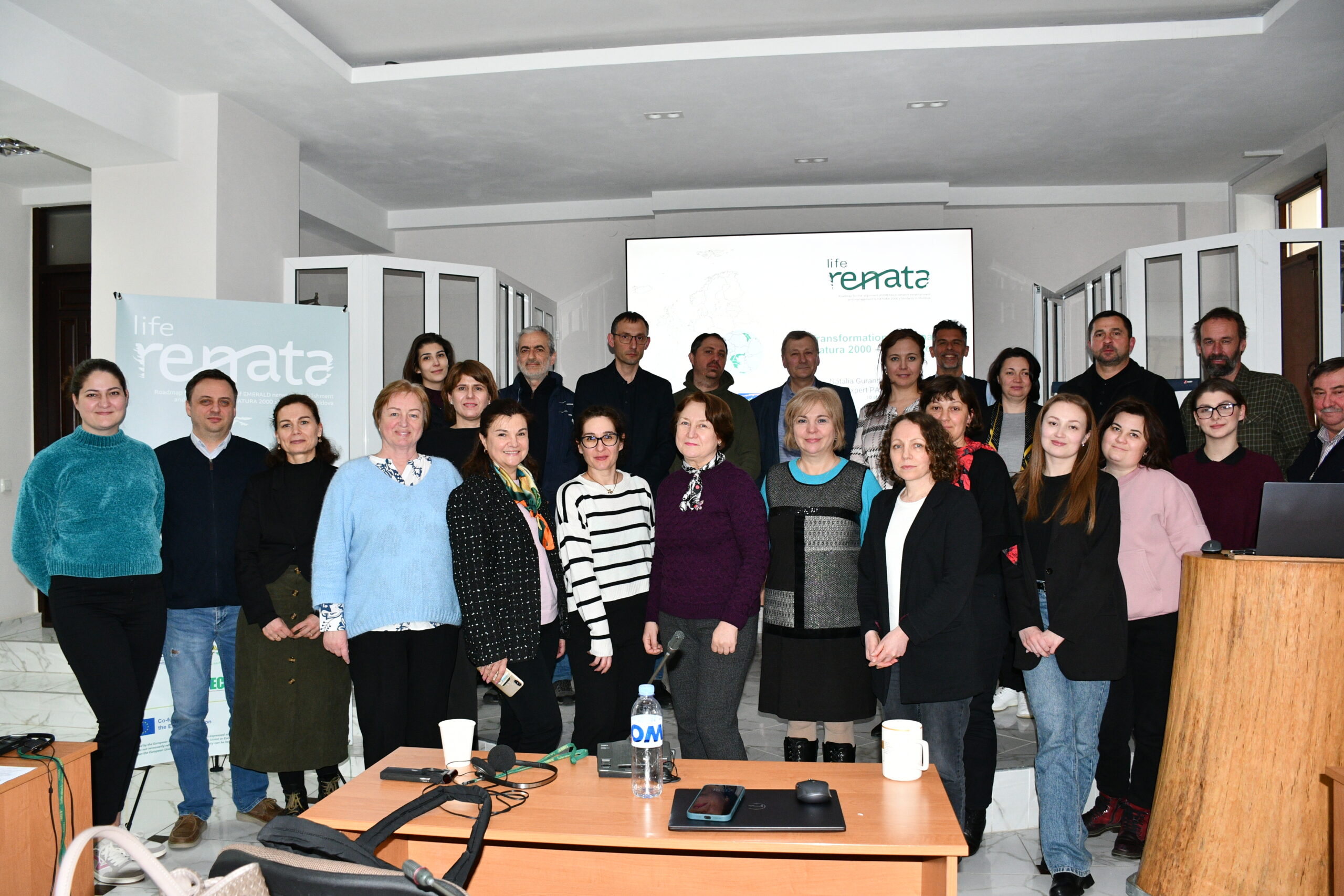Chisinau, Moldova – April 10, 2025 – From April 8 to 10, 2025, Moldova welcomed the third LIFE RENATA project meeting, along with the 2nd Training Session and 2nd Consultation meeting, a major step forward in its efforts to align its Emerald Network of protected areas with the European Union’s Natura 2000 standards. For three days, project partners and experts from Moldova, Greece, and Ukraine – including representatives from ministries, NGOs, research institutions, and technical agencies – came together to present the first official results of this ambitious transition process. The events were organized by LEVER, EcoContact, kartECO, ICAS, EKBY, and the Ministry of Environment.
The events marked a major milestone for Moldova’s environmental governance and its broader EU integration. It focused on the progress made in assessing how well the country’s current systems align with the EU Birds and Habitats Directives and outlined the steps ahead.
Among the key results presented were:
- The initial gap analysis, showing where Moldova’s laws and institutions still need to evolve to meet EU standards.
- Progress in updating the boundaries of Emerald sites and revising their Standard Data Forms (SDFs).
- The first version of the Transition Roadmap, presented as a draft for stakeholder input, mapping the way toward future Natura 2000 designation.
- An introduction to EU Nature Directives – Criteria and specifications – site-specific conservation objectives.
- The preliminary version of the Knowledge Repository Hub, an expert and knowledge pool tool.
The events also included a synergy session with the “sister project” ConNaturLIFE implemented in Ukraine and the project “Czech Support for Better Management of Protected Areas in Moldova” implemented under the United Nations Development Programme (UNDP) Challenge Fund, where experts exchanged ideas on managing transboundary species, ecological corridors, and shared conservation goals. This reinforced regional collaboration on biodiversity.
The three-day agenda included a mix of technical consultations and hands-on training. Experts presented innovative approaches to protected area mapping, legal harmonization, and the integration of smart digital tools. One highlight was the introduction of the Knowledge Repository Hub—a prototype digital platform designed to support Natura 2000 implementation with centralized data, expert resources, and monitoring tools. Participants also explored how Natura 2000 objectives could be integrated into broader land-use planning, agriculture, and climate policy, ensuring conservation goals are part of Moldova’s national development strategies.
In this context, the Project Manager of LIFE IP4NATURA was invited to participate as a keynote speaker, offering valuable insights into one of Greece’s most strategic environmental initiatives. The LIFE IP4NATURA project, which has been implemented over the past eight years with a total budget of €17 million, focuses on the development and implementation of management and conservation actions within selected pilot sites of the Natura 2000 network.
Through this presentation, participants gained a clearer understanding of the practical steps and long-term initiatives that typically follow the designation of Natura 2000 sites. The Greek experience served as an illustrative example for Moldova, offering a glimpse into the potential trajectory of nature conservation efforts now unfolding in the country.
Although the Natura 2000 Roadmap is still under development, the presentation of its first version is a significant step forward. It lays the groundwork for an actionable plan that will guide Moldova toward full compliance with EU environmental directives by 2030.
By mid-2025, the project aims to:
- Finalize the Roadmap with clear milestones.
- Propose concrete legal reforms to align with EU Nature Directives.
- Expand stakeholder engagement and develop robust biodiversity monitoring systems.
The event was hosted in Chisinau by the Institute for Forestry Research and Management (ICAS), in partnership with the environmental NGO EcoContact. Project deliverables will be made available on the LIFE RENATA project webpage, which will be accessible via the EU LIFE Programme portal: https://liferenata.eu/main-results-impact/

